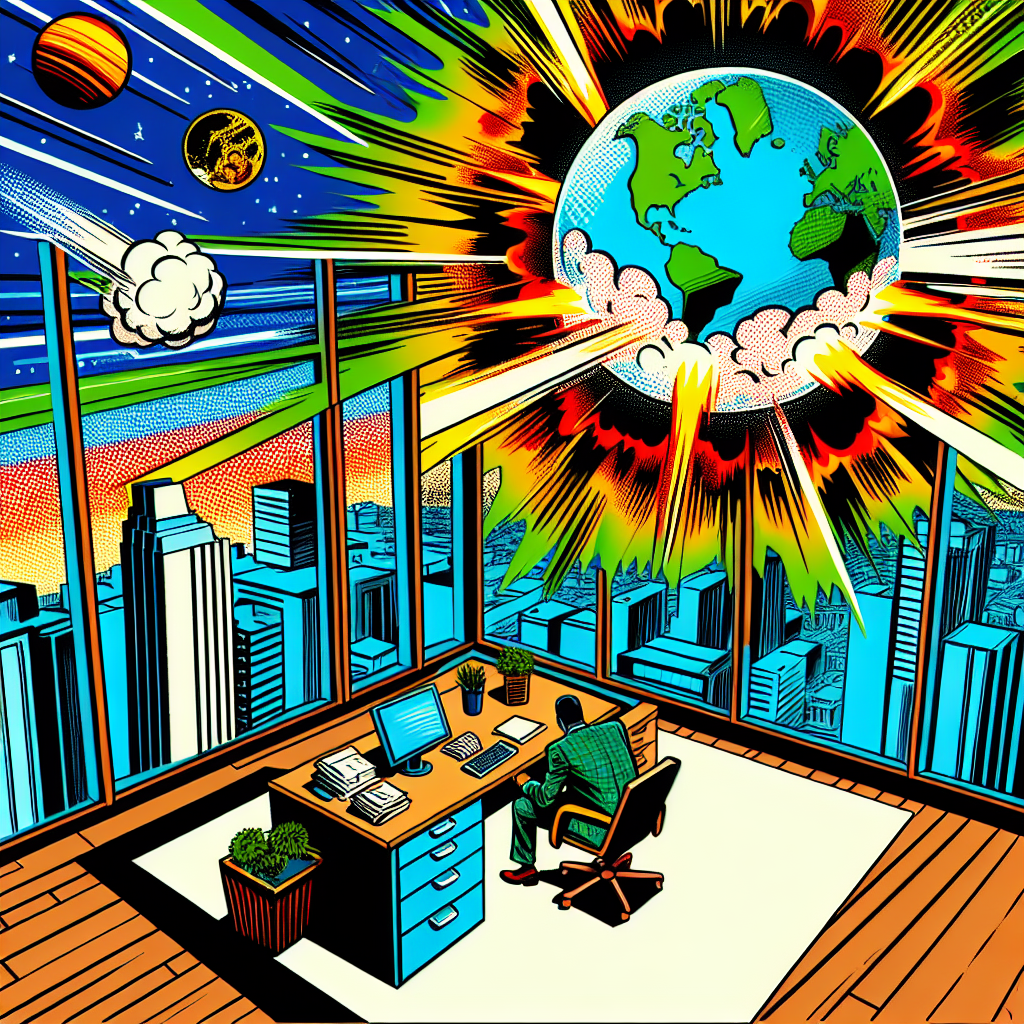If Earth's rotation were to suddenly stop, the effects would be catastrophic and far-reaching. Imagine a giant top spinning rapidly, and then suddenly freezing in place - that's what would happen to our planet.
The first and most immediate effect would be the extreme winds. As the Earth's rotation slowed and then stopped, the air would keep moving at the same speed it was before, causing hurricane-force winds to ravage the planet. These winds would be so powerful that they would level cities and destroy everything in their path. In fact, the winds would be so strong that they would even alter the shape of the Earth's surface, creating new sea channels and reshaping coastlines.
Another dramatic effect would be the extreme changes in temperature. With the rotation stopping, the equator would instantly become the hottest place on Earth, while the poles would become the coldest. This is because the equator would constantly face the sun, while the poles would be in perpetual darkness. The temperature differences between the two would be so extreme that they would create massive storm systems that would encircle the entire planet.
The oceans would also be severely affected. The sudden loss of centrifugal force would cause the oceans to bulge out at the equator and form massive tidal waves. These waves would swallow coastal cities and low-lying areas, displacing millions of people. The ocean currents would also come to a standstill, causing marine life to die off in massive numbers.
With the rotation stopping, the planet's magnetic field would also collapse. This would leave the Earth vulnerable to harmful solar and cosmic radiation, which would have devastating effects on both human health and electronic systems.
The Earth's rotation also plays a crucial role in the creation of the jet stream, a fast-moving band of air that helps regulate the weather. Without it, the jet stream would collapse, causing extreme and unpredictable weather patterns. This would lead to massive storms, prolonged droughts, and intense heatwaves.
In addition, the lack of rotation would cause the Earth's axis to shift, leading to extreme and unpredictable climate fluctuations. The polar ice caps would begin to melt at an alarming rate, causing sea levels to rise at an unprecedented scale.
The effects on the Earth's geology would also be severe. The sudden loss of rotational force would cause massive earthquakes, volcanic eruptions, and the creation of new fault lines. The planet's tectonic plates would be in a state of chaos, leading to the creation of new mountain ranges and the reshaping of the Earth's surface.
As the rotation stopped, the day-night cycle would also come to an end. The side of the Earth facing the sun would be in perpetual daylight, while the other side would be trapped in eternal darkness. This would have a profound impact on the planet's ecosystems, leading to the extinction of many species that rely on the day-night cycle for survival.
The loss of a 24-hour day would also have a significant impact on human society. Our circadian rhythms, which are regulated by the day-night cycle, would be severely disrupted, leading to widespread health problems. The lack of a regular day-night cycle would also make it impossible to keep a regular schedule, leading to chaos in transportation, commerce, and communication systems.
In conclusion, if the Earth's rotation were to stop, the effects would be far-reaching and catastrophic. The planet would be thrown into chaos, and human civilization as we know it would be severely impacted. The extreme winds, temperature fluctuations, and geological upheaval would make it difficult for life as we know it to survive.

Popular Space Questions
Find answers to the trending space questions being asked by our community on social media.
- How many galaxies are there in the universe?
- What would happen if a pulsar's beam hit Earth?
- How far is Pluto from Earth?
- How many planets are in the Milky Way?
- How many planets are in our solar system?
- What are the planets in order?
- How big is the Earth?
- What if we could create a Dyson sphere around the sun?
- What if we found a way to manipulate gravity?
- What would happen if a cosmic string passed through Earth?